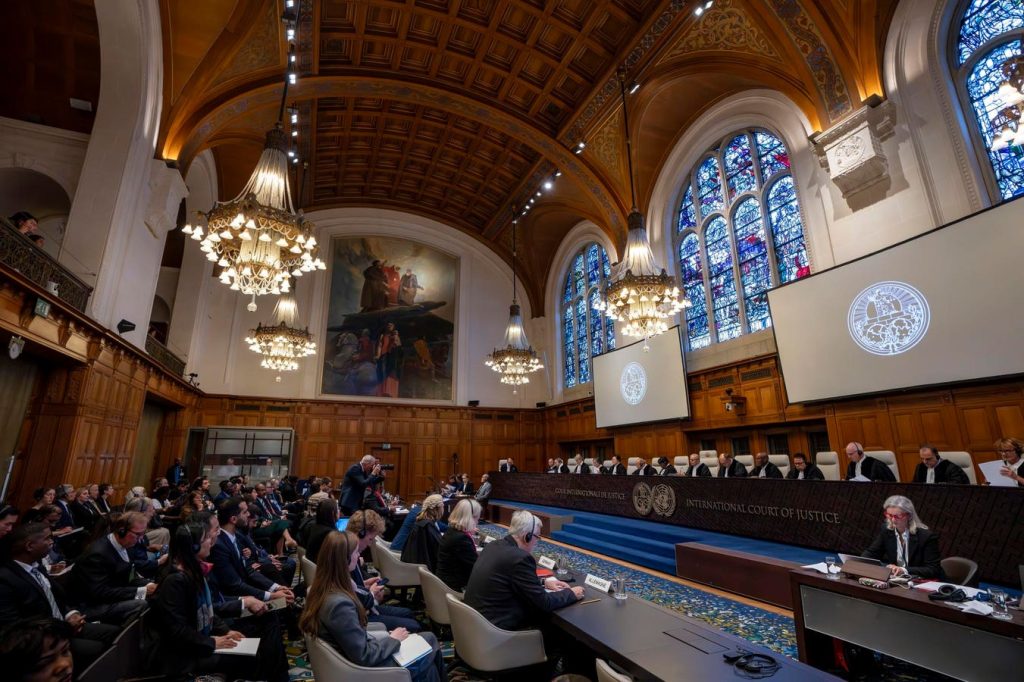The International Court of Justice (ICJ), also known as the World Court, recently concluded oral hearings concerning its forthcoming advisory opinion on states’ obligations regarding climate change. This advisory opinion, requested by the United Nations General Assembly (UNGA) following a plea from the nation of Vanuatu, will address the critical issues of financial liability for climate change contributions and necessary preventative actions. The hearings, spanning two weeks in December 2024, saw over 100 countries and parties present their arguments, setting the stage for a potentially impactful legal interpretation of climate responsibility. While the ICJ’s advisory opinions are non-binding, they hold significant weight in shaping future climate litigation and influencing the development of international climate law.
The legal arguments presented during the hearings revolved around the existing framework of international climate agreements, primarily the United Nations Convention on Climate Change (UNCCC) and the Paris Agreement. Developed nations, including the United States, Australia, and Germany, invoked the principle of lex specialis, arguing that these specific treaties supersede any other international legal frameworks regarding climate change. This interpretation limits state obligations to those explicitly outlined in the agreements, effectively precluding claims for reparations or actions beyond the negotiated framework. They contend that the comprehensive nature of these climate-specific treaties obviates the need to consider other legal avenues for addressing climate change impacts.
Developing nations, conversely, presented a different perspective, arguing that while the UNCCC and Paris Agreement serve as a foundation, they do not encompass the full scope of climate change impacts, particularly concerning human rights. These countries asserted that the consequences of climate change infringe upon established human rights principles enshrined in international common law and the Universal Declaration of Human Rights. They emphasize the disproportionate burden borne by low-lying and developing nations, which are often least responsible for greenhouse gas emissions yet suffer the most severe consequences of climate change. This perspective calls for reparations from developed nations, whose historical and ongoing emissions contribute significantly to the climate crisis. They advocate for a broader legal context that encompasses human rights considerations when addressing climate change responsibilities.
This argument for reparations based on human rights violations has gained traction in other international legal proceedings. The European Court of Human Rights, for example, recognized protection against climate change impacts as a fundamental human right, grounding its decision in the European Convention on Human Rights and the Paris Agreement. Similarly, the International Tribunal on the Law of the Sea established a duty for states to prevent climate change to protect the marine environment, linking the Paris Agreement with obligations under the United Nations Convention on the Law of the Sea. These precedents, while not directly binding on the ICJ, demonstrate a growing international legal trend toward recognizing the human rights dimensions of climate change.
The ICJ hearings offered the United States its first opportunity to formally present its legal arguments on climate change liability in an international court setting, as it was not involved in the prior European Court of Human Rights or International Tribunal on the Law of the Sea proceedings. The U.S. maintained that the UNCCC and Paris Agreement exclusively define state obligations regarding climate change. However, a written response to a judge’s question provided a more explicit articulation of the U.S. position, sparking significant debate.
In response to Judge Aurescu’s query about the existence of a right to a clean, healthy, and sustainable environment, the U.S. categorically denied the existence of such a right under international law. The U.S. argued that neither global treaties nor customary international law support this right, despite acknowledging the growing recognition of the environment’s importance to human rights. While acknowledging the increasing awareness within the international community of the vital link between a healthy environment and the enjoyment of human rights, the U.S. maintained that this recognition has not yet solidified into a legally binding international norm. The U.S. further stated that establishing such a right requires a transparent process involving state input and consent, implying a reluctance to embrace the concept without explicit international consensus. This stance highlights a key point of contention within the international legal debate on climate change, with developing nations advocating for a broader interpretation of existing legal frameworks to include environmental human rights.
The U.S. assertion sparked significant discussion and potentially foreshadows future legal debates surrounding climate change responsibility. This explicit denial contrasts with the growing trend in international jurisprudence towards recognizing the interconnectedness of human rights and environmental protection. The ICJ’s upcoming advisory opinion holds considerable importance, as it will provide a crucial benchmark for interpreting state obligations regarding climate change and will likely influence future legal and political developments in this critical area. The divergent legal interpretations presented during the hearings underscore the complex and contentious nature of climate change liability and the need for continued international dialogue to address this global challenge. The ultimate impact of the ICJ’s advisory opinion remains to be seen, but it will undoubtedly play a significant role in shaping the future of international climate law and policy.

